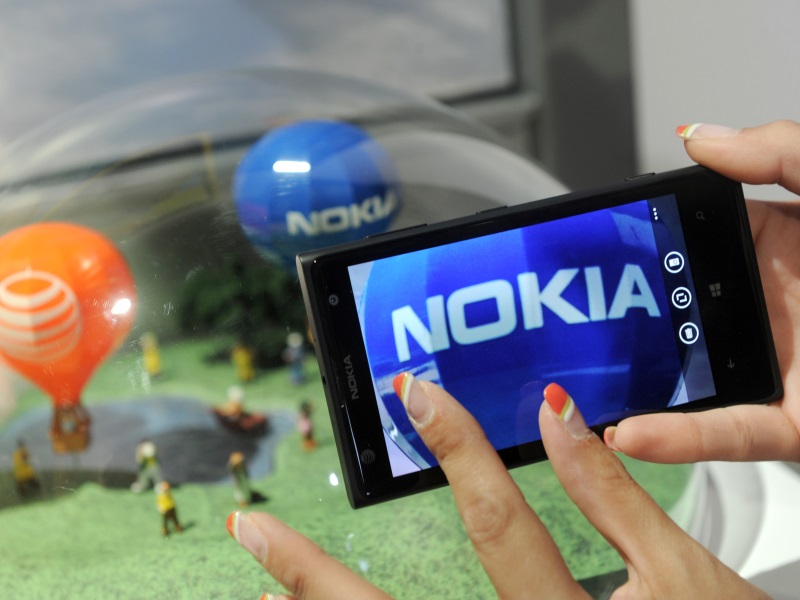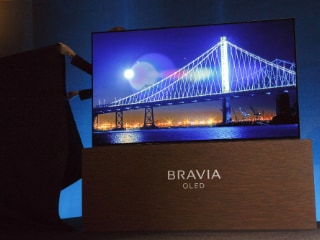- Home
- Telecom
- Telecom News
- Nokia Posts Weak Quarterly Profits, Lifts Cost Cut Target
Nokia Posts Weak Quarterly Profits, Lifts Cost-Cut Target

Nokia also on Thursday lifted its cost-cutting target for the EUR 15.6 billion merger, sealed earlier this year, saying it was now seeking annual savings of EUR 1.2 billion in the course of 2018, compared to above EUR 900 million previously.
Second-quarter earnings before interest and taxes (EBIT) came in at EUR 332 million ($370 million), clearly missing the average analyst forecast of 400 million given in a Reuters poll of analysts.
Group sales dropped 11 percent from a year ago to EUR 5.67 billion, including network equipment sales falling to 5.23 billion, which compared with a market consensus of 5.42 billion.
Nokia repeated its full-year forecast for network sales to fall but changed the target for the operating margin to a 7 to 9 percent from more than 7 percent previously. In the second quarter, the networks margin was 6.0 percent, compared with a market view of 6.8 percent.
"(We) expect to see slight sequential improvement in both net sales and operating margin in our networks business from the second quarter to the third, followed by significant improvement from the third to the fourth quarter," chief executive Rajeev Suri said in a statement.
Nokia acquired Franco-American Alcatel-Lucent to better compete with Sweden's Ericsson and China's Huawei in a market with limited growth prospects until a fresh cycle of network upgrades begins around 2020.
Once known for its mobile phones, Nokia sold the handset business to Microsoft in 2014, leaving it with the networks business and a portfolio of technology patents.
Microsoft has largely abandoned the business it acquired since then, while in May, Nokia signed a licensing agreement to bring Nokia-branded smartphones back to the market.
© Thomson Reuters 2016
Catch the latest from the Consumer Electronics Show on Gadgets 360, at our CES 2026 hub.
Related Stories
- Samsung Galaxy Unpacked 2025
- ChatGPT
- Redmi Note 14 Pro+
- iPhone 16
- Apple Vision Pro
- Oneplus 12
- OnePlus Nord CE 3 Lite 5G
- iPhone 13
- Xiaomi 14 Pro
- Oppo Find N3
- Tecno Spark Go (2023)
- Realme V30
- Best Phones Under 25000
- Samsung Galaxy S24 Series
- Cryptocurrency
- iQoo 12
- Samsung Galaxy S24 Ultra
- Giottus
- Samsung Galaxy Z Flip 5
- Apple 'Scary Fast'
- Housefull 5
- GoPro Hero 12 Black Review
- Invincible Season 2
- JioGlass
- HD Ready TV
- Laptop Under 50000
- Smartwatch Under 10000
- Latest Mobile Phones
- Compare Phones
- Red Magic 11 Air
- Honor Magic 8 RSR Porsche Design
- Honor Magic 8 Pro Air
- Infinix Note Edge
- Lava Blaze Duo 3
- Tecno Spark Go 3
- iQOO Z11 Turbo
- OPPO A6c
- Lenovo Yoga Slim 7x (2025)
- Lenovo Yoga Slim 7a
- Lenovo Idea Tab Plus
- Realme Pad 3
- Moto Watch
- Garmin Quatix 8 Pro
- Haier H5E Series
- Acerpure Nitro Z Series 100-inch QLED TV
- Asus ROG Ally
- Nintendo Switch Lite
- Haier 1.6 Ton 5 Star Inverter Split AC (HSU19G-MZAID5BN-INV)
- Haier 1.6 Ton 5 Star Inverter Split AC (HSU19G-MZAIM5BN-INV)







![[Sponsored] Haier C90 OLED TV | Dolby Vision IQ, 144Hz OLED and Google TV in Action](https://www.gadgets360.com/static/mobile/images/spacer.png)









